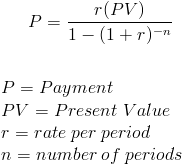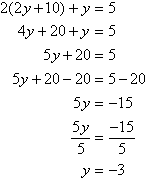
How to valuate a business? Depending on your reason for valuing a business , you have several options for coming up with a basic company worth. If you need to sell the. The tangibility of the business assets (contrast physical assets with future profitability) The age of the business (an established company’s profit versus an emerging company’s negative asset value ) But by far the weightiest factor that affects the value of a business is how much a buyer is willing to pay for it. To reach this figure, you.
A business valuation calculator helps buyers and sellers determine a rough estimate of a business ’s value. Two of the most common business valuation formulas begin with either annual sales or annual profits (also known as seller discretionary earnings), multiplied by an industry multiple. Both methods are great starting points to accurately value your business. The generally accepted best way of valuing any business is to determine the net present value of all future free cash flows, which gives you the fair value of the business.
In order to do this, you need to produce some reasonably accurate. I f business is existing then something called goodwill is taken into the equation. You really need to know at least years trading figures, rates,rent, utilities costing, staffing, registration fees, clients , turn round of children and.
The price of buying a business that is already in place is usually based upon a formula having to do with existing revenue and profit and of course the value of the property itself. For example, in some industries just doubling the annual. The sum total of these valuations is the basis for the value of the business. In many cases, the value of the intangible assets exceeds the value of the tangible assets, which can result in a major amount of arguing between the buyer and seller over the true value of these assets. There is no perfect valuation formula.
Each one has issues, so. If a business actually owns its own property and building, then the value of that real estate is estimated separately and added to the SDE value of the business. Some small business owners hold on to the ownership of real estate when they sell their business and agree to lease the property back to the new owner on a long-term lease agreement. In profit multiplier, the value of the business is calculated by multiplying its profit. Expected value −Initial cost of decision 4. Added value = Sales revenue − costs of bought -in goods and services 7. By definition, a business that is adding substantial value must also be operating profitably.

Finding ways to add value is a really important activity for a start-up or small business. Liquidation value is the amount that would be left over if you had to sell your business quickly, without taking the time to get the full market value , and then used the proceeds to pay off all debts. What is the formula to value a company? Then, add any expenses resulting from amortization and depreciation, as well as.
The net present value (NPV) method uses an important concept in investment appraisal – discounted cash flows. The short video below explains the concept of net present value and illustrates how it is calculated. The study note below also explains NPV further.
Investment Appraisal - Net Present. A computational procedure used to determine the value of a business. The value of the predicted cashflow, plus terminal value , is then discounte to provide a current business valuation. Business Valuation Formula.
It may be hard to establish an accurate terminal value , as it relies so heavily on the cashflow estimates. This is called generating Marginal Value , and future articles will be dedicated to illustrating how to do this. As a buyer, you would look at how you can increase the value of the business by changing the score of the risk characteristics and the net income. The key is the multiplier formula of net income times the risk multiplier. To value your business , you need to consider a number of variables.
Simply put, your business is worth its profits. When investors — and potential buyers of your business — ask what the value of your company is, they mean how much profit are you making.
No comments:
Post a Comment
Note: only a member of this blog may post a comment.